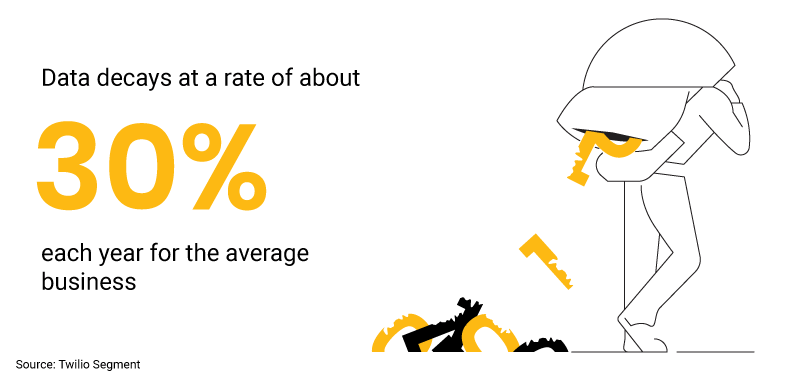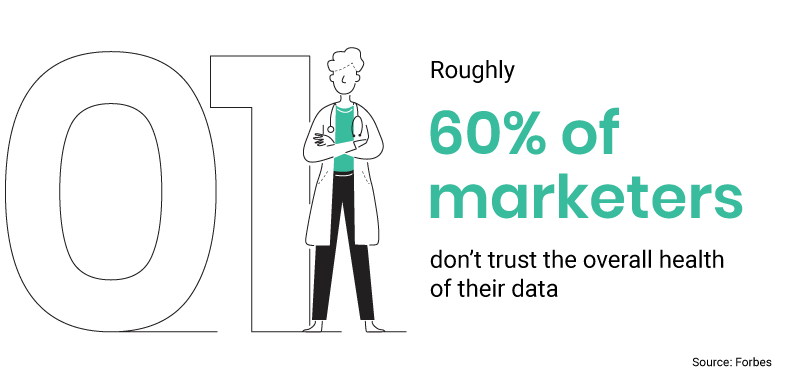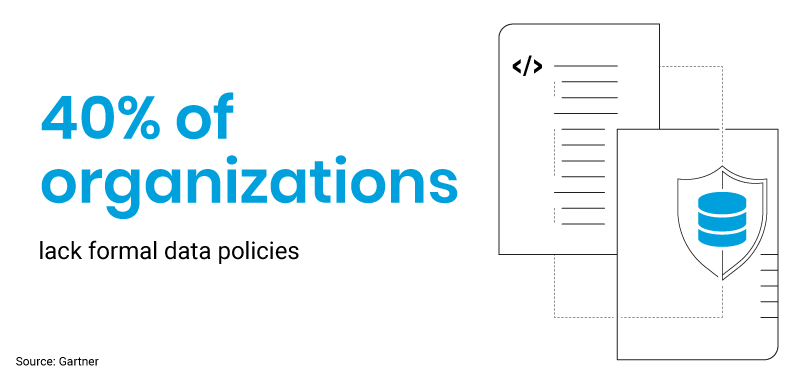Data hygiene plays a critical role in today’s data-driven landscape for businesses spanning various industries. It holds immense significance in helping them maintain effective decision-making, operations, and even customer engagement.
Ensuring accurate and up-to-date data is vital to avoid supply chain disruptions, financial discrepancies, and operational inefficiencies. By practicing sound data hygiene, organizations can derive actionable insights. This ultimately helps to aid strategic planning, resource allocation, and even performance optimization.
Also, data hygiene is essential for nurturing strong customer relationships. By maintaining clean customer data, businesses can offer personalized experiences, timely communications, and accurate billing. This, in turn, minimizes customer churn and enhances overall loyalty.
Below, we’re sharing 20 interesting statistics about data hygiene for your business.
20 interesting data hygiene statistics
General Data Hygiene Statistics
- According to ZoomInfo, 94% of businesses suspect that their customer and prospect data is inaccurate.
- An article in Forbes claims that each year up to 18% of all telephone numbers change while over 20% of CEOs change.
- Twilio Segment says that data decays at a rate of about 30% each year for the average business.

- Bad data costs U.S. businesses over $3T per year according to AccuData. This accounts for roughly 12% revenue for individual businesses.
- 40% of business objectives fail due to inaccurate data according to ZoomInfo.
- Experian states that duplicate records account for an average of 15-20% of all data in an organization.
- According to Forbes, B2B data decays at a rate of 70% per year.
- SEM Rush claims that roughly 37% of organizations use AI and machine learning to improve data quality.
Data Hygiene Statistics in Sales & Marketing
- According to MailChimp, segmented email campaigns have a 14.31% higher open rate than non-segmented campaigns.
- Leona Creo shares that sales departments lose almost 550 selling hours every year due to inaccurate information kept in CRM’s.
- Forbes shares that roughly 60% of marketers don’t trust the overall health of their data.

- Personalized email subject lines are 26% more likely to be opened shares Campaign Monitor.
- Hubspot shares that just under 70% of email recipients unsubscribe due to emails that are not relevant to them.
- An article in Forbes states that companies that integrate their databases have seen conversion rate increases of over 12%.
- Statista shares that social media platforms removed 1.3 billion fake accounts in 2020.
Data Hygiene Statistics & Challenges
- According to Talend, 5% of organizations have their data in silos which ultimately hinders data hygiene efforts.
- Experian shares that 80% of organizations say that data complexity is a barrier to their data’s quality.
- An article in Oracle stated that 83% of data migration projects exceeded their budget or timeline due to data quality issues.
- According to Forbes, About 27% of business leaders aren’t sure how much of their data is accurate.
- Gartner shares that 40% of organizations lack formal data policies.

Final Thoughts
Data hygiene is crucial for successful businesses. It forms the foundation for effective decision-making, customer engagement, and revenue generation. Without accurate and clean data, businesses risk wasted resources, missed opportunities, and even damage to their brand reputation.
High data hygiene helps to ensure you’re targeting the right prospects and leads. Clean data identifies promising opportunities, reducing time and effort spent on dead-end leads. It also enables personalized outreach, increasing the likelihood of conversion.
Good data hygiene is also essential for crafting effective marketing campaigns. Accurate data helps segment the audience, deliver relevant content, and measure campaign performance. Clean data reduces bounce rates, ensures messages reach the intended recipients, and maintains the integrity of subscriber lists. Precise customer data allows marketers to create compelling and personalized content, boosting engagement and conversions.
Ultimately, accurate data empowers businesses to make informed decisions, target the right audience, enhance customer experiences, and drive growth and profitability. With accurate and clean data, businesses can thrive in today’s competitive landscape.






